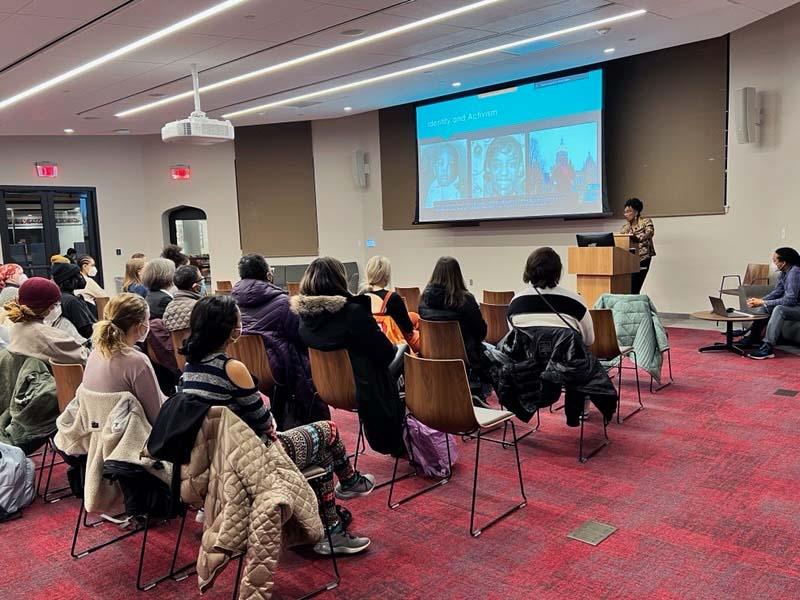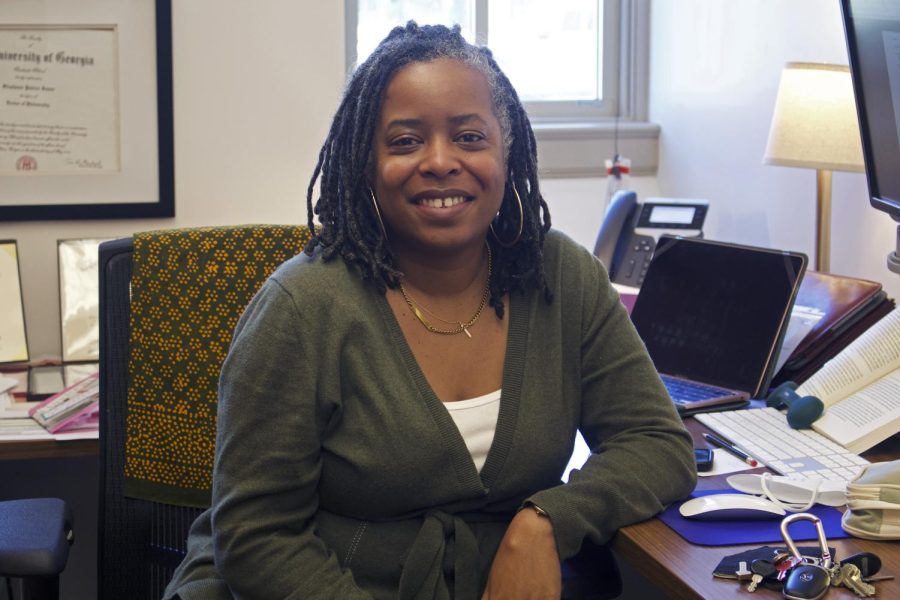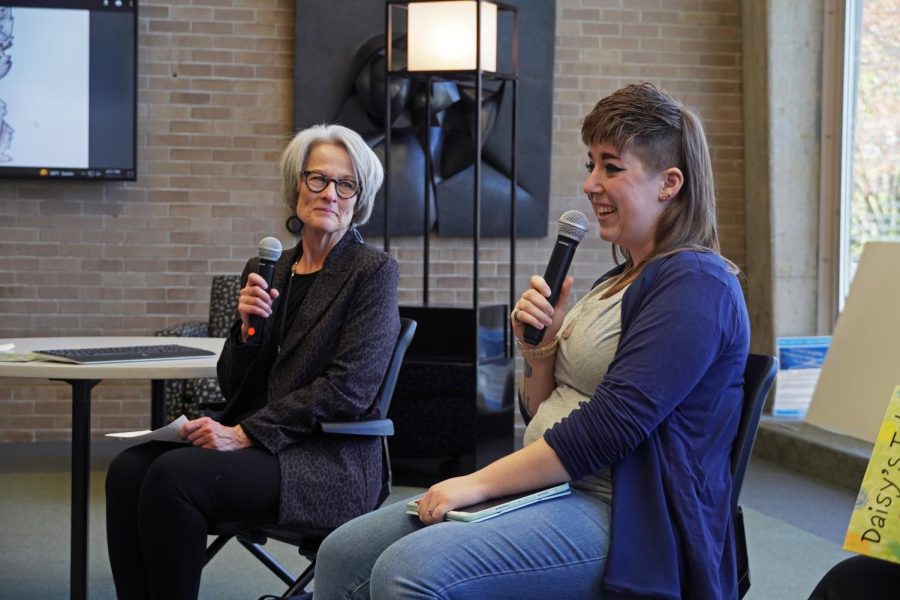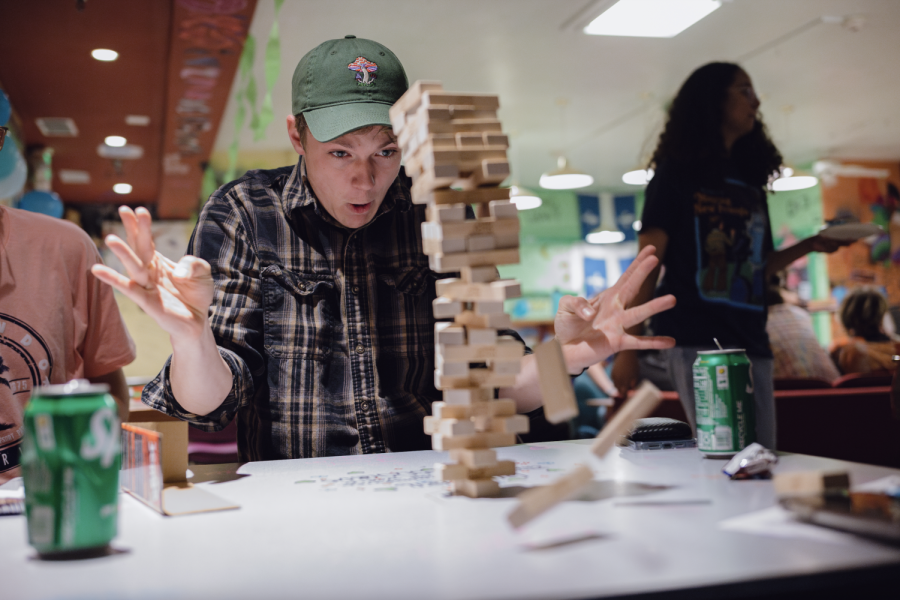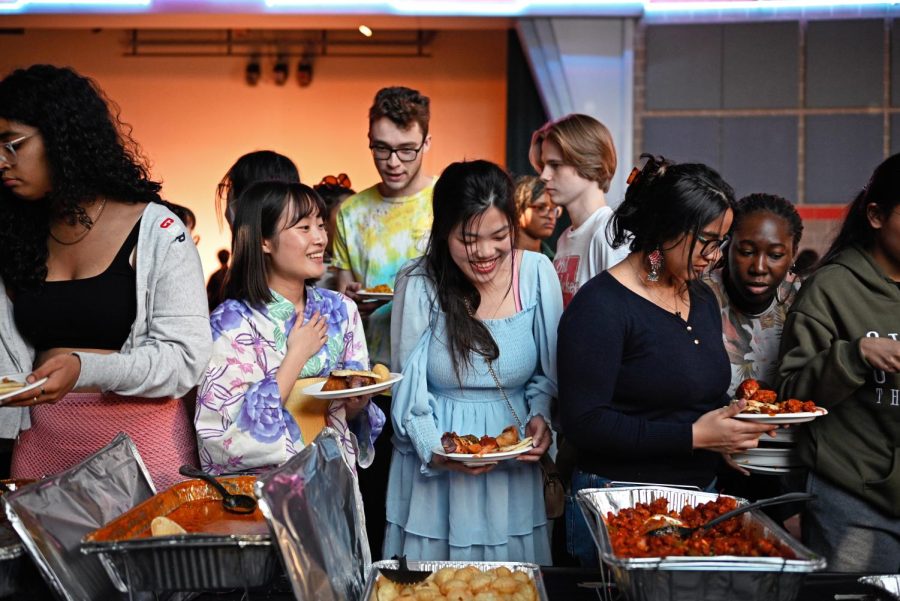By Keir Hichens
hichensk@grinnell.edu
As Black History Month continues, events planned by Concerned Black Students (CBS) are in full swing. Members of the CBS cabinet, in coordination with the African and Caribbean Students Union (ACSU), are organizing events for Black students that center Black joy.
On Feb. 3, Professor. Kesho Scott, American studies and sociology, spoke about how her research in Liberia and her work studying the Black Holocaust intersect with life and activism at Grinnell. Bethany Willig ’23, a CBS cabinet member, reflected on Scott’s questions for members of the Grinnell community.
“She really interrogated students, like what is your education for? What are you here at Grinnell for?”
Willig hopes that non-Black people take Black History Month as an opportunity to consider how they’re spending their money, pay reparations and think about where their privilege lies.
“Our homework might not be as important as reading some abolitionist texts and sharing…what we’ve learned with our peers…questioning how we’re spending our time and what we say we’re too busy to do,” Willig said.
The College has been somewhat supportive of CBS and ACSU’s organizing, and Willig is hopeful for the future.
“The College has been overall supportive for Black History Month, Jazzmine Brooks has coordinated with us, so we’ll see.” Brooks, a new director of intercultural affairs and Black student specialist recently hired by the College, has been coordinating with CBS and ACSU on some Black History Month events.
Most remaining events tentatively planned for the month, including affinity groups, talking spaces, Black Church and meditation events, are meant for Black community members.
ACSU cabinet member Durowaa Agyeman-Mensah `22 envisions “a meditative space” for Black community members where they can “know they’re safe to be their authentic full selves,” and counteract resilience narratives by “just being without having to try to overcome.”
When big events happen, Willig says that students should boost them on social media and actually show up:
“Students can make time for events. Ask ‘what is my education lacking?’” Willig said, adding, “We don’t just need money from the college, but we need our peers to also be reflecting…especially with..these racist Yik Yaks you just keep seeing [that] are obviously harming black students.”
Yik Yak is an anonymous location-based social media app that is currently making a resurgence after facing criticism across the country and on Grinnell’s campus in the late 2010s for fostering bullying, hate speech, and threats of harm. At one of CBS and ACSU’s earlier Black History Month events, a screening of the 2022 Africa Cup of Nations final soccer match in the HSSC, Willig recounted that a group of attendees “made a normal amount of noise for watching sports.”
After the event, an unknown student posted on YikYak, “up to the jungle on HSSC north third.” The post is one example of a larger trend in “normalized racist comments on campus,” Willig added, wondering, “Why are they policing Black joy?”
Sharena Brown `23, another CBS cabinet member, has experienced similar instances of racism on campus: “little snide microaggressions like that are still as damaging to my being as a person, and also makes me question my decision to be here. … So like, it doesn’t really surprise me that those instances also translate over into Yik Yak.”
Given the culture of compassion, responsibility, and joy that students like Brown and Willig have worked so hard to build, casually racist comments are as destructive as they are disappointing.
“We’re allies on social media, but we’re not allies in real life and I think that’s something that Grinnellians can really work on,” Brown said.
Willig, Brown, and Agyeman-Mensah’s goals are to create a foundation for Black students to build upon after current CBS and ACSU members have graduated.
Brown said, “Number one is just knowing that you have community, and that there are people who look like you in your classes and in your spaces. … I want black people to know that they can rely on each other.”
“My hope is to have helped solidify the unity and family of the Black community on campus,” Willig said.















































